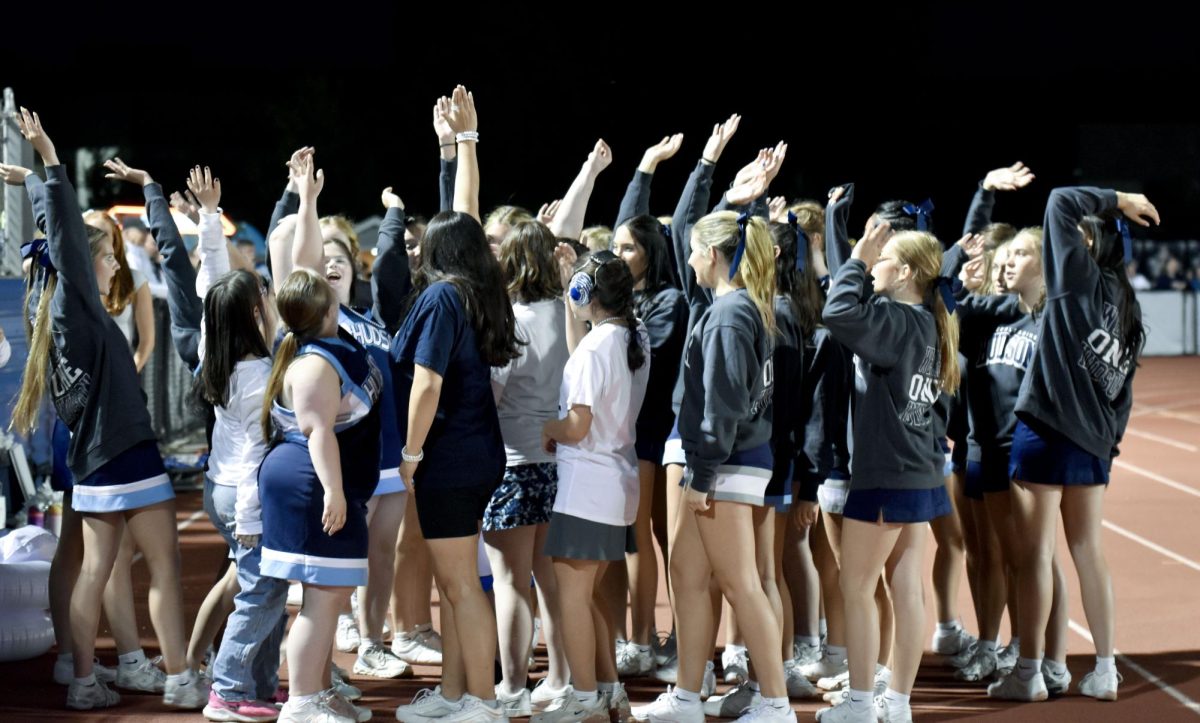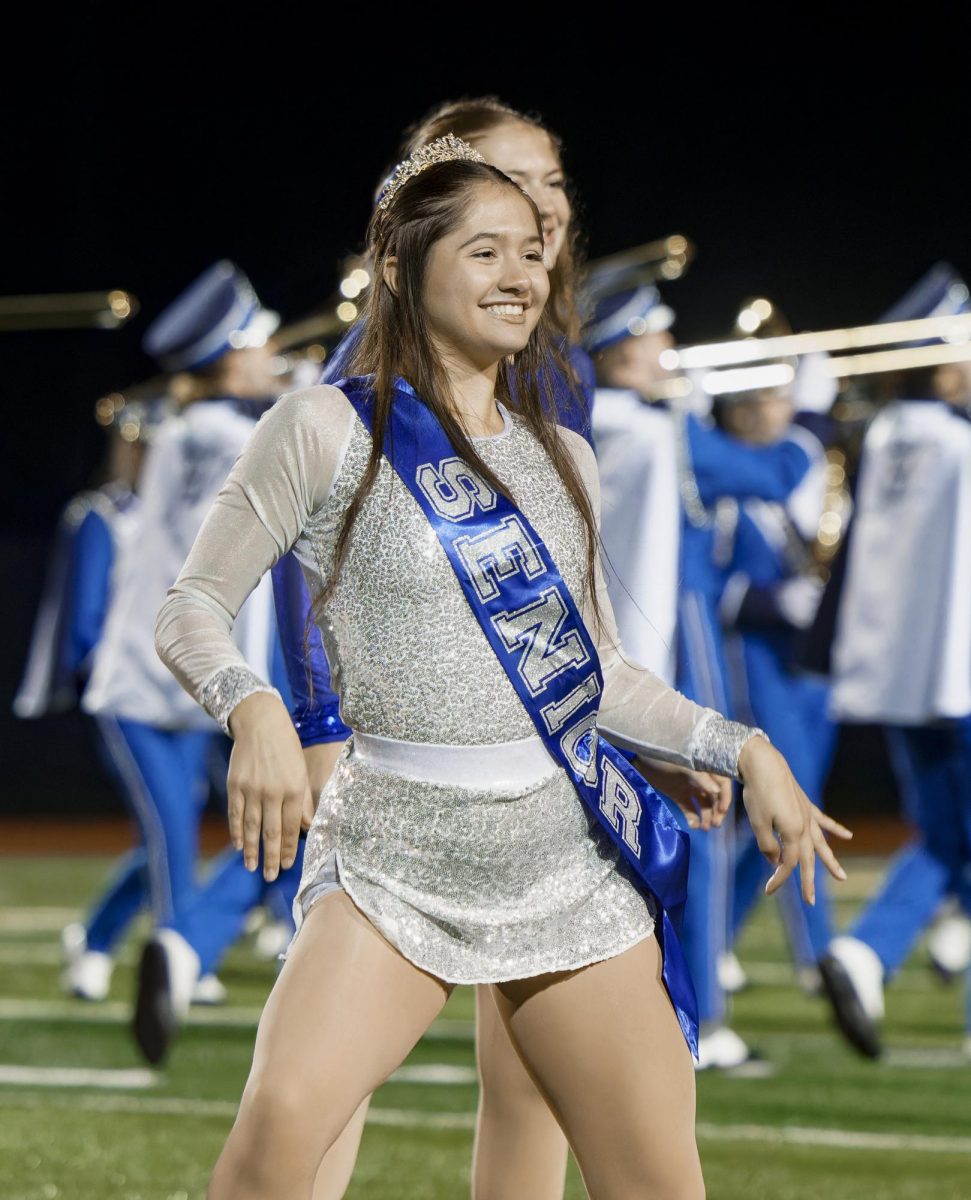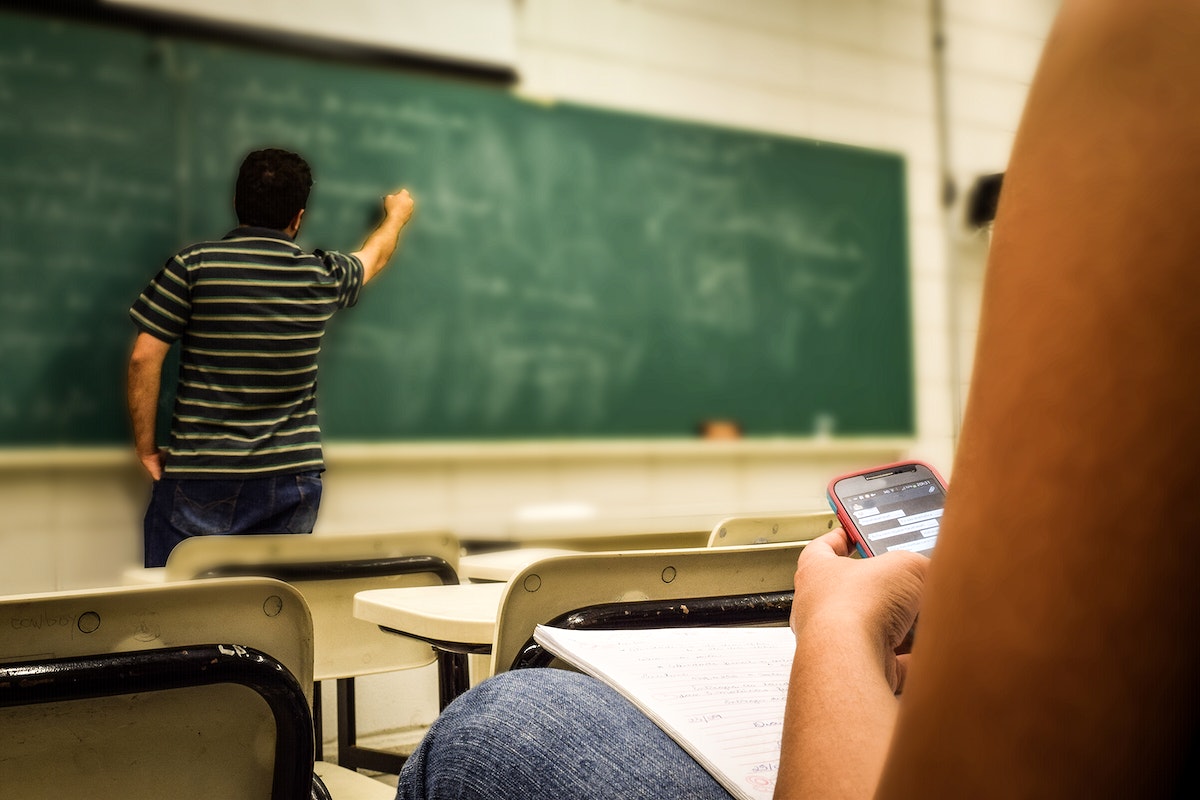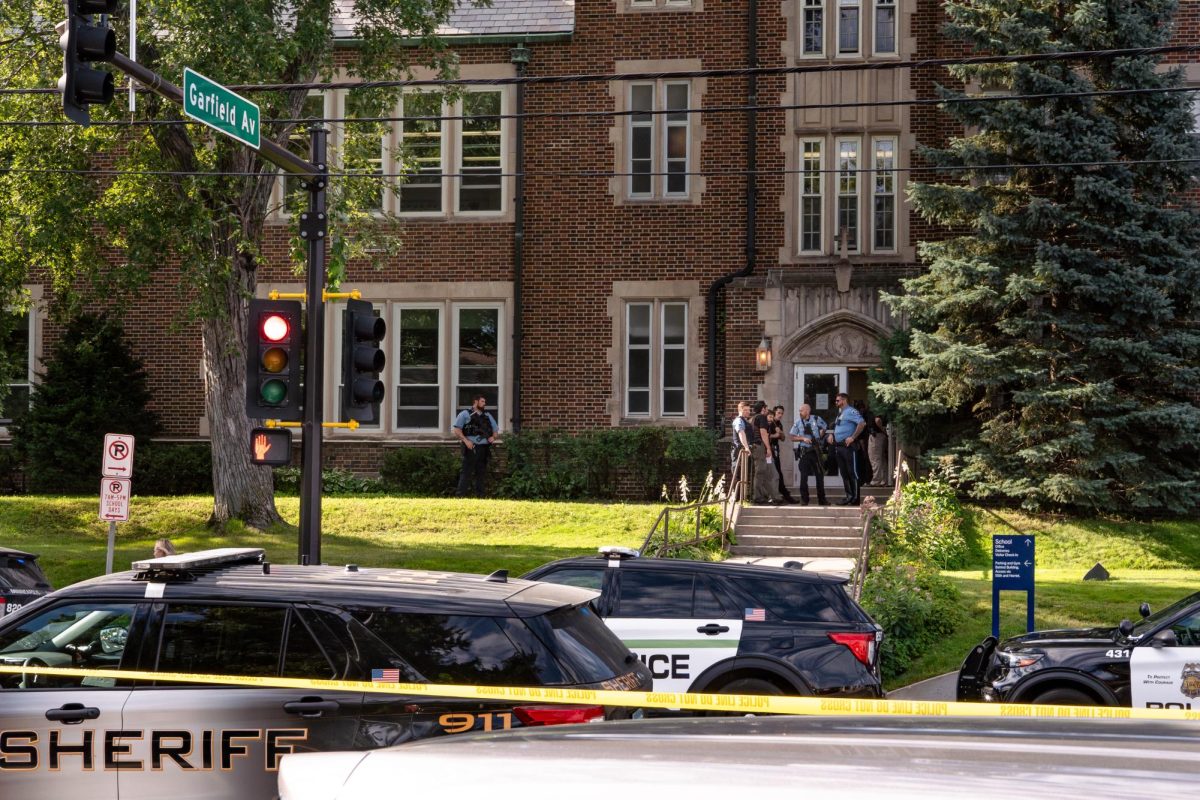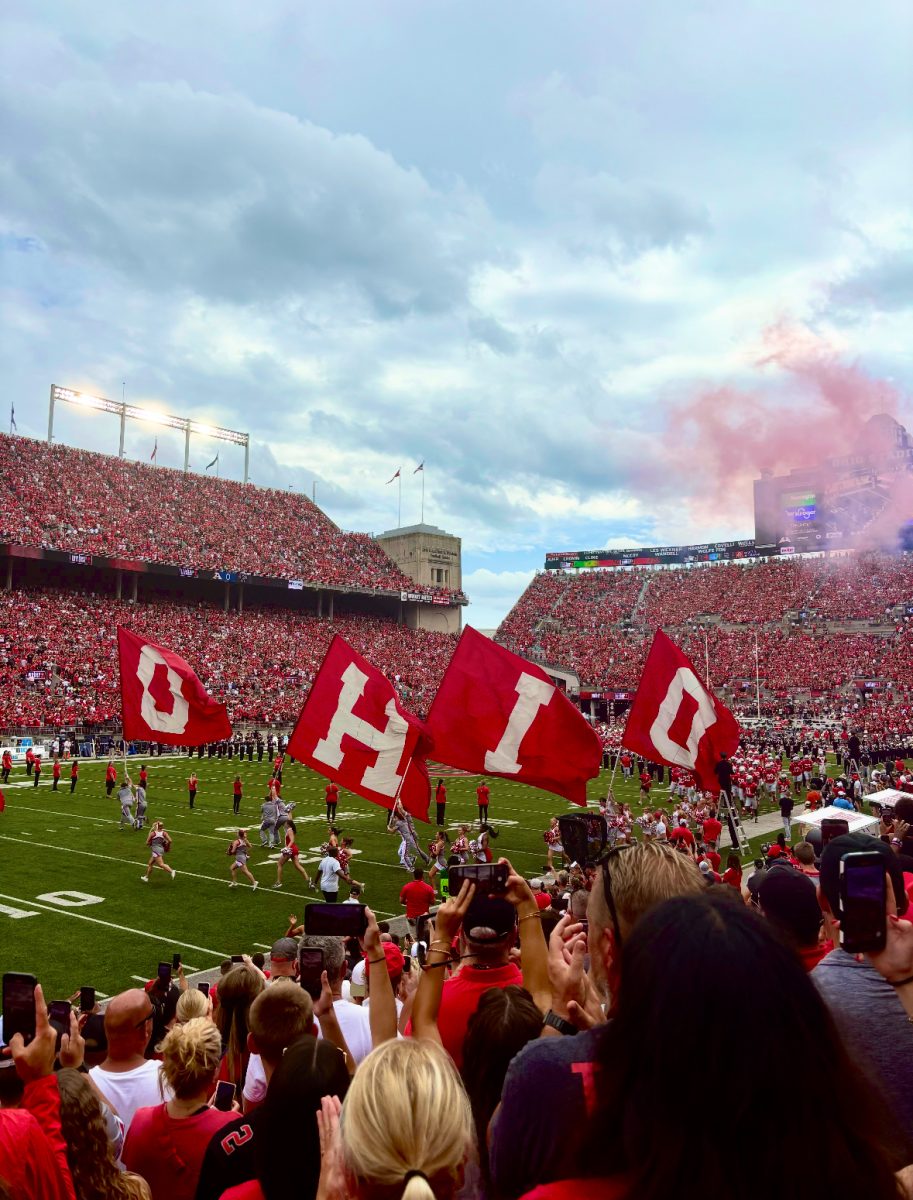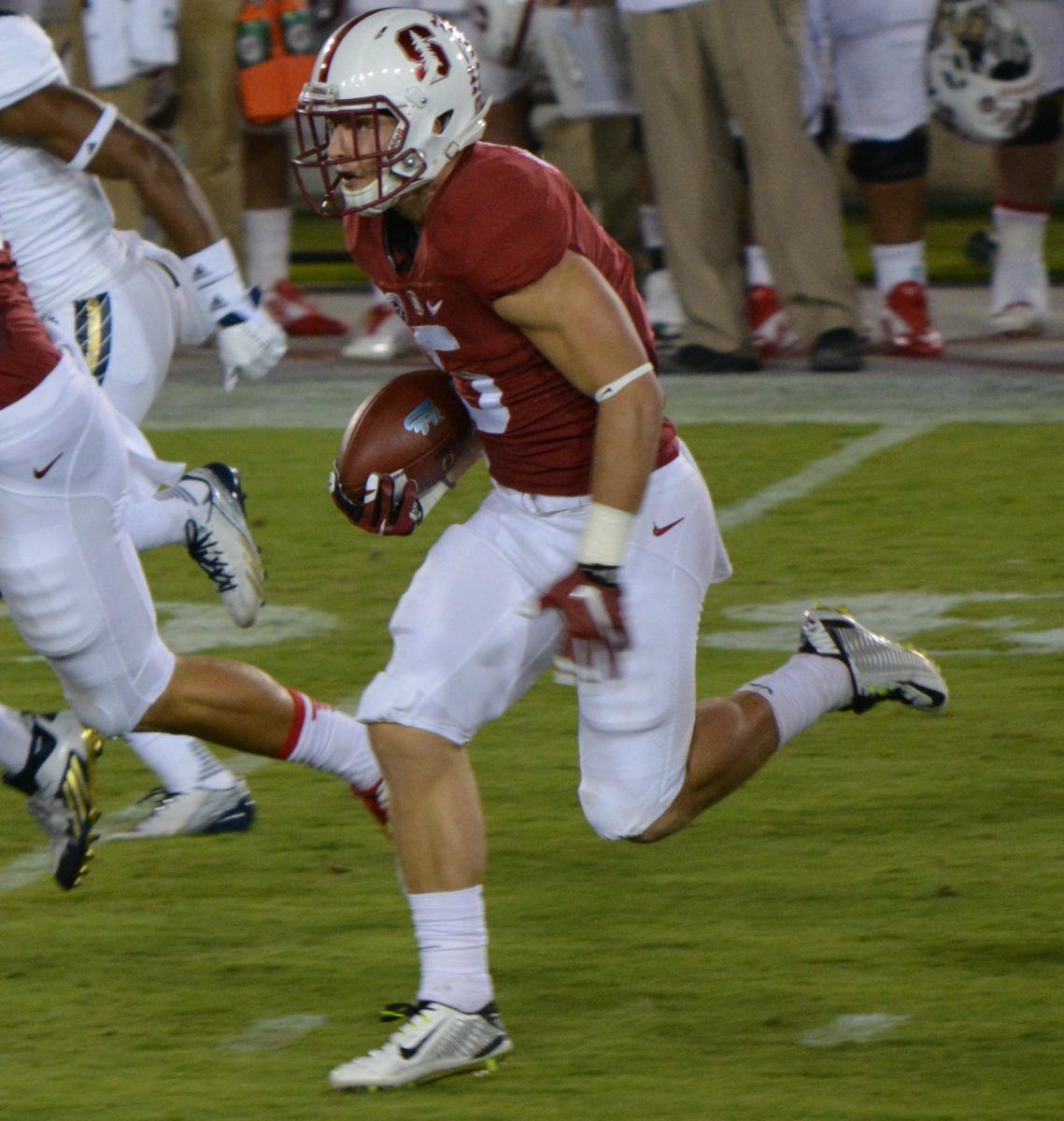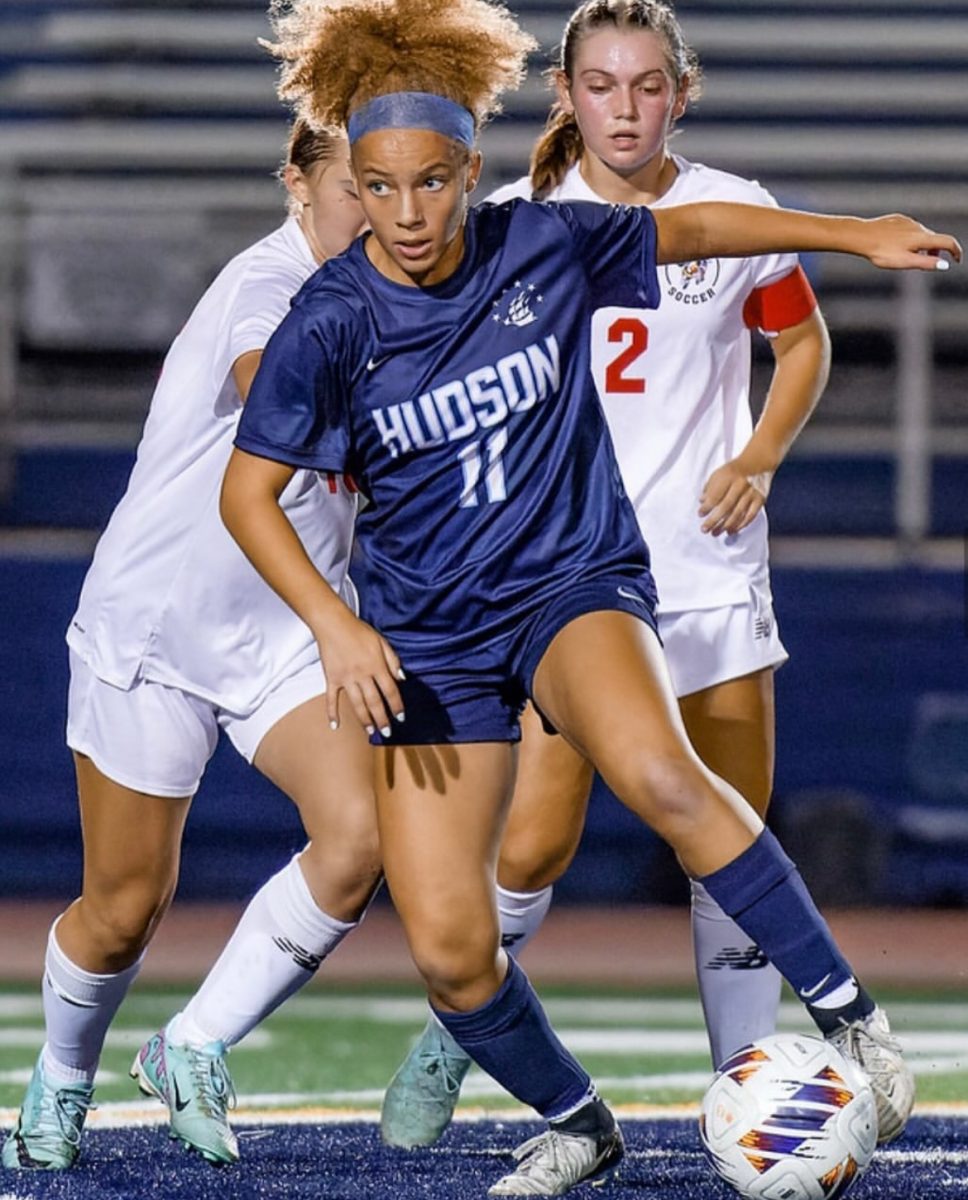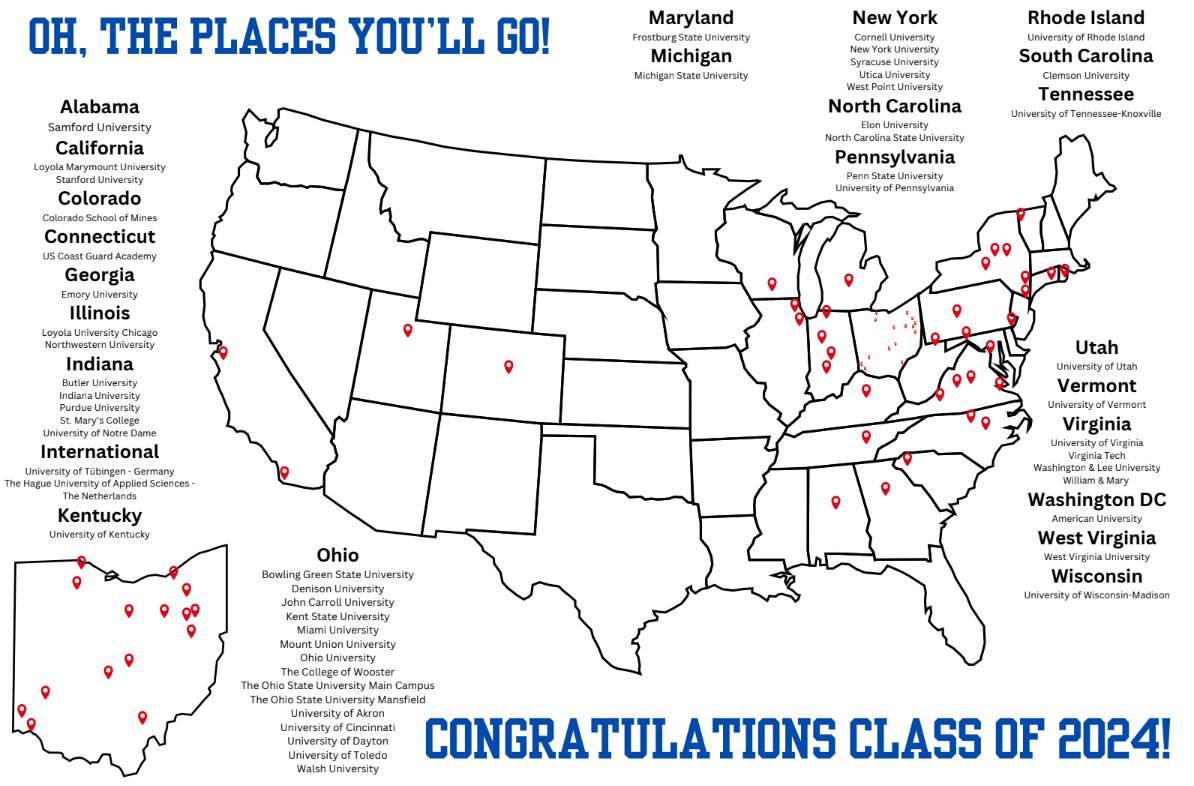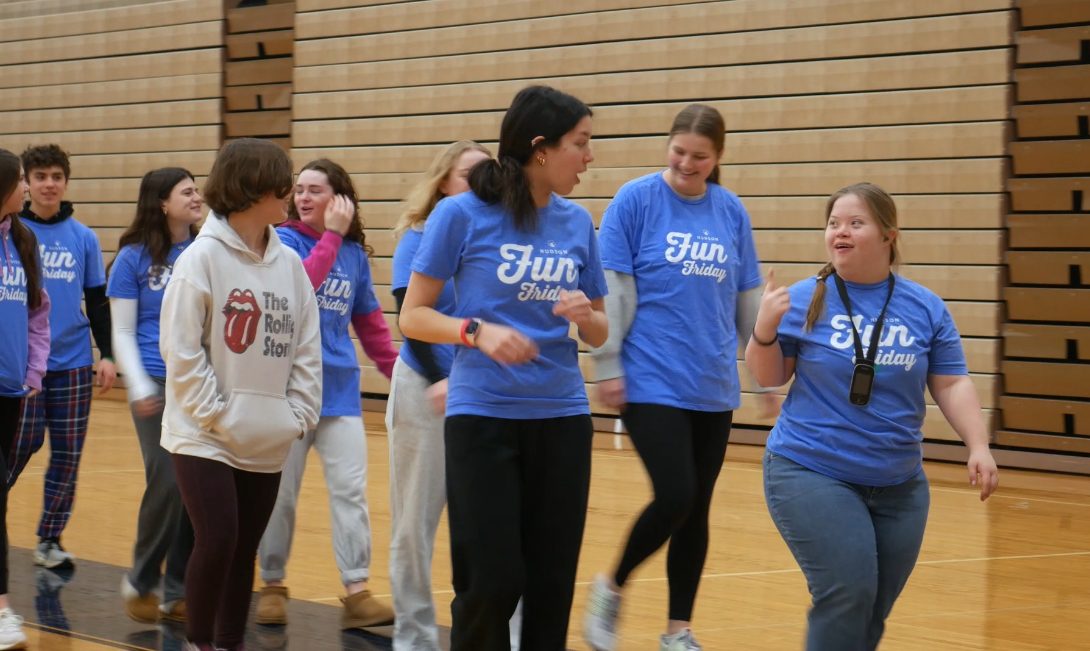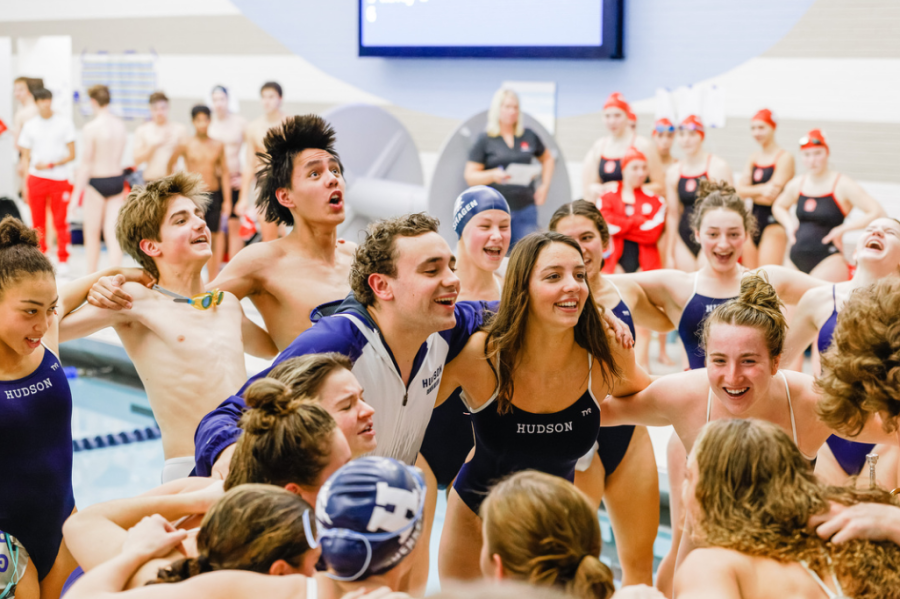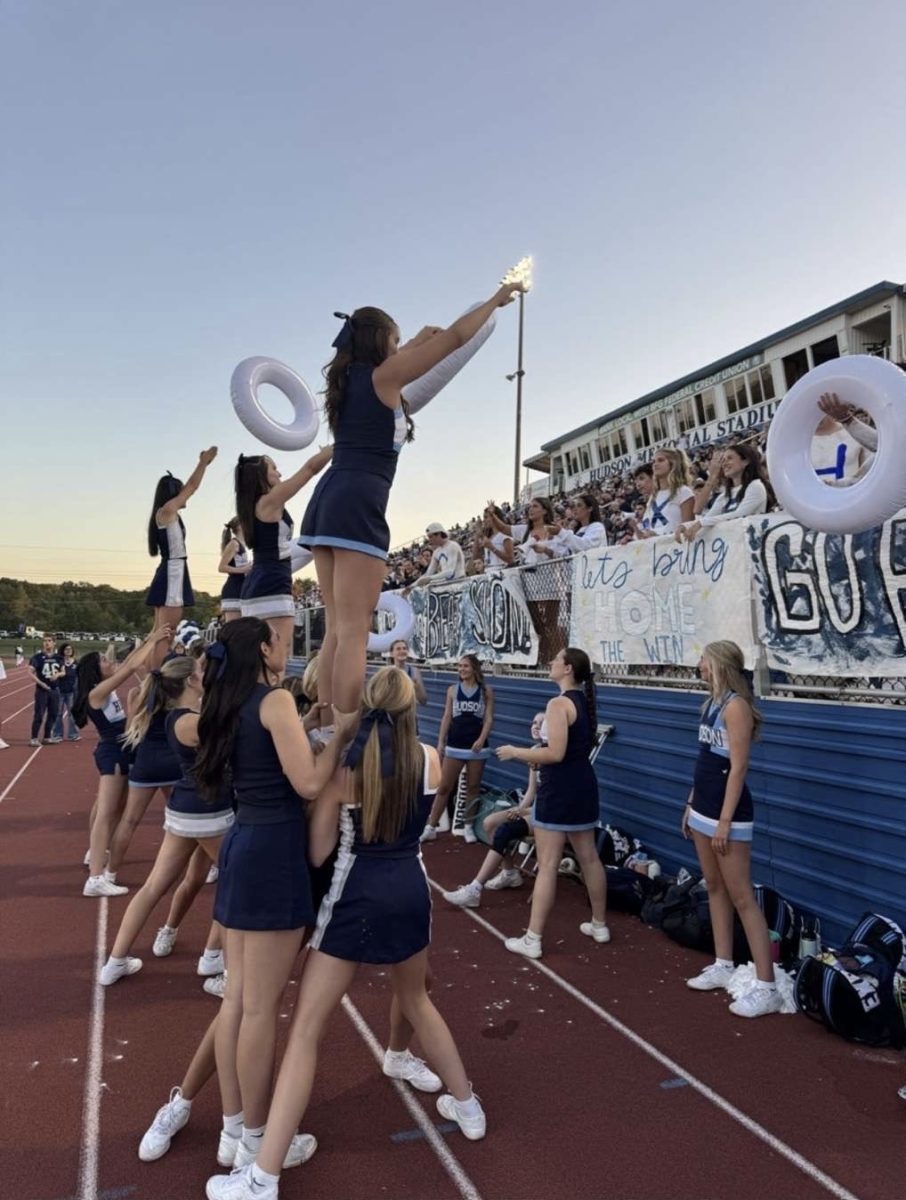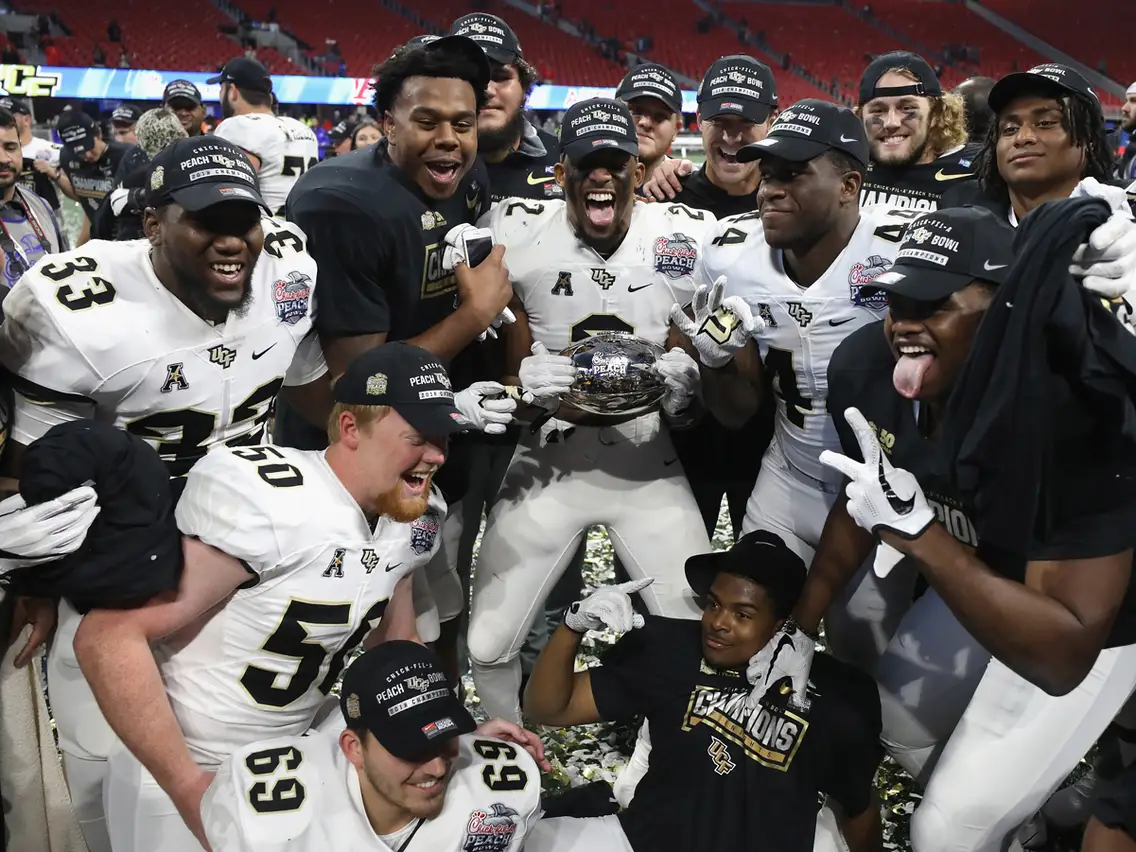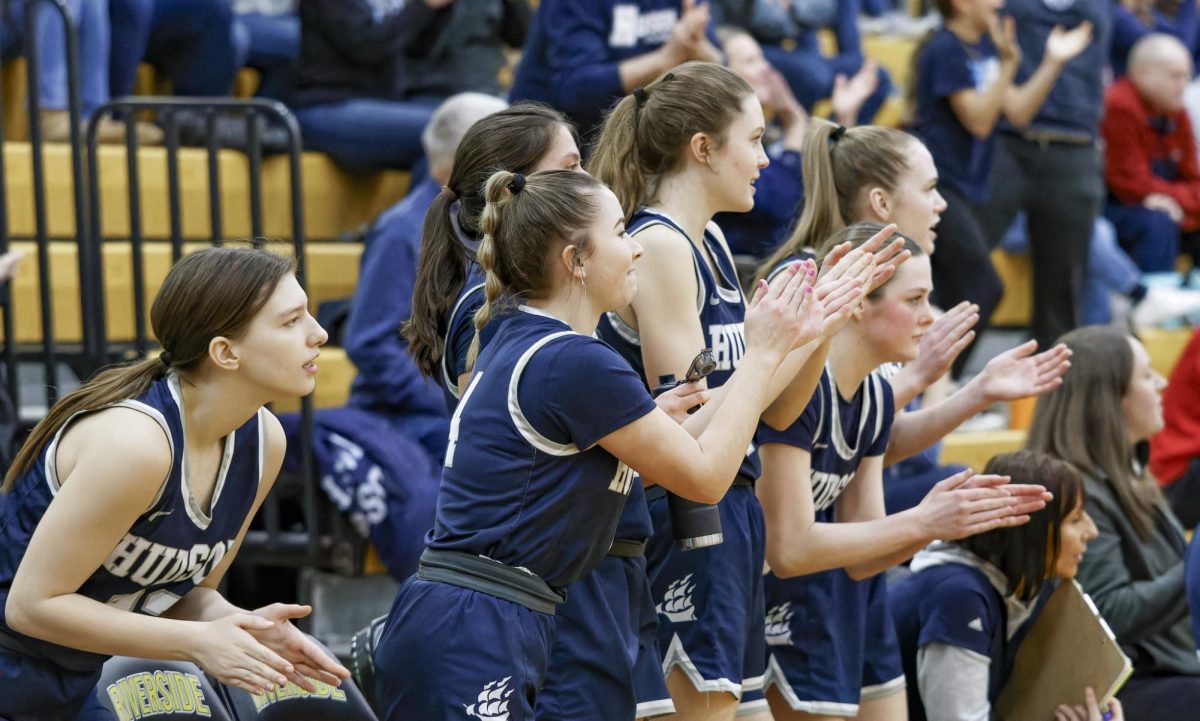Hudson High School is known for having one of the best athletic programs with excellent coaches and competitive student athletes. The support student athletes receive from the athletic department and the entire community is invaluable, almost pushing students to keep up with their athleticism just to give back to the ongoing support. The sports at HHS are an important part of our culture. Students make new friends through participating in sports or by attending sports events. Talking about whether the Football team will go far in the season, or if Field Hockey will win states, or who is committing to the best D1 school … Everything related to sports is almost always exciting. On the surface, high school sports seem like a non-stresser. Students tend to be more thrilled around the time their sports season arrives than in any other time of year. One respondent to a survey says “Soccer brings me so much joy and truly increases my happiness. I made so many good memories during the season.” Similarly, students who have friends on sports teams are more enthusiastic abouttheir sports season. Those who don’t have to make time for their friends in a week of practice Mon-Sat for two hours each. Students have varying opinions on whether or not sports impact their friendships. On one hand, students said their sports season brought them closer as they all played the same sport, but on the other hand, students who don’t have their friends in their sports team report spending less time with their friends. Though it’s common for many students to become friends with their teammates, there are cases where students struggle and that in itself might be an issue. Still, 56.5% of students with or without friends in their sport team report feeling stressed during their season.
In the broader cases of stressors in high school sports, time commitment is one that makes most students anxious. The challenge of balancing teammate relationships, practices, homework, sleep and work for students who still have to work in season, are all ways in which students feel overwhelmed
Lack of sleep becomes a common trait among student athletes when in season. Marshall Mintz, a New-Jersey based sports psychologist claims, “The biggest problem among student athletes is sleep loss– all these kids are sleep–deprived, and this becomes a major contributor to anxiety and depression.’’An estimated 31.9% of adolescents have some form of an anxiety disorder. The amount of depression and anxiety in high school athletes has risen over the last 15 years.
While most student athletes recognize sleep loss is a congruent factor for a student athlete, many seem to be ok with it when they need to keep up with their school work and stay at an A average.
One respondent to the survey commented, “I wish teachers were more understanding of the schedule that athletes have.” 47.8% of students reported feeling worried about their grades during their sports season.
While students believe that the stress of filled up schedules might interfere with the successes in their grades, school counselor Mrs. Carmichael explains, “Most students share that they feel more focused on their schoolwork during the season because of the really set routine and there’s not a lot of room for free time. So sometimes students report they feel their grades are better during their sports season, however, sometimes students come in and explain to me that they don’t know how to do it all.”
Carmichael goes on to explain how most students figure their way around the stress, and drop down to easier level classes to be able to handle the rigorous sports schedule. These situations mainly occur during fall sports when students start to realize that they can’t handle taking five APs while having practice every night and family time to prioritize as well. In sports that come later in the school year such as swimming, students are half-way through the year, and are unable to drop out or switch out of a difficult class without being very behind. Students report that their free time is tremendously limited with practices before and after school. One swimmer commented, “Swim sucks hardcore some days, but the team bonds really work well and we push each other through.”
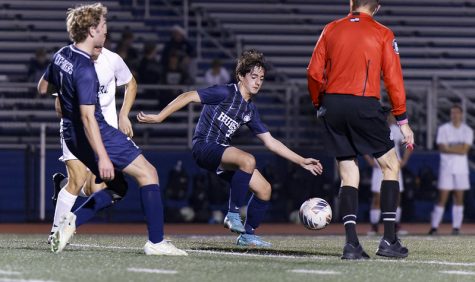
In a study performed by the National Athletic Trainers’ Association, student athletes were found to experience negative emotional states more often than non-student athlete adolescents.
Most student athletes at HHS stick to one or two sports. If the school season isn’t going on for the individual’s chosen sport, usually club teams are a way to keep up with the sport year round. But in many cases, stress comes along when the season arrives and expectations are at hand of both the student-athlete and coach.
According to a respondent, “Coaches don’t understand mental health and are very hard core. They need to be softer and more understanding.”
Although this may not be the same answer for all students at the high school, most survey respondents commented on the strictness of their coaches, one saying that, “Your mental health is dependent on your coach.”
Coaches seem to be of great importance for most student-athletes at HHS. While some coaches may be known for being more ‘chill’ or fun than others, head coaches can be more intimidating and strict in order to win the championship. But do coaches really need to be intimidating when trying to win?
In a 2013 report that summarizes the research on coaching styles, a team of academics affiliated with the American Psychological Association concluded that supportive coaching delivers better results. “Coaches who provide high levels of encouragement, support and autonomy are more likely to foster positive psychological responses in their athletes and ultimately lead to higher levels of performance.” In other cases, coaches don’t necessarily have to be “mean” in order to affect student’s mental health. Playing time is a huge stresser for student athletes during their sports season. Sometimes a student athlete’s self worth can be linked to not only how their performance went, but how many minutes it lasted. These effects can later affect athletes in college where the pressure becomes much more dangerous, especially when not knowing how to cope with these specific issues. Receiving playing time means being seen that one’s performance is improving. Fifty percent of respondents responded feeling seen while the rest responded no.
And so the last stressor among HHS student athletes becomes dealing with expectations and competition. Counselor Mrs Carmichael comments, “From my perspective it’s about dealing with everyone else’s expectations. Trying to manage coaches expectations, parents, teammates and yourself. And so that to anybody, even the most successful athletes, expectations are a ton of weight. And then adding schoolwork.”
Expectations at HHS have always been a problem. From school work, to GPA and into a number of extra curricular activities or minutes during a game- everything tends to be a competition.
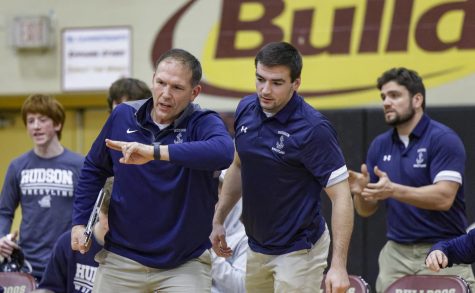
With that being said and well known around HHS most students want things to stay the same, and don’t want a more intense or competitive sports experience. A little over 70% of students responded to the survey wishing sports level of competition stay the same. The competition makes sports worth playing and getting involved in, but at times HHS goes well over the stress free line. Competition with coaches and teammates in order to receive playing time or be recognized to the standards of specific athletes can create a toxic environment for some teams. One respondent commented, “In a large number of our programs, I believe the competition between players from the coaches can have a serious negative impact on the mental health of our students. It’s up to the administration to listen to the players and talk to the coaches in order to improve the programs.”
Dealing with the ongoing expectations and competition can be beneficial in more ways than others. Student athletes are noted to earn up to 40% higher test scores than non-student athletes. Being in a sport aids the development of physical skills and can lead to positive social benefits. 73.9% of student athletes at HHS responded feeling happier during the sports season.
These statistics and more provide the idea that participating in high school sports are beneficial to students. Balancing the benefits while also realizing the harmful effects of a stressful sports season is what should be most prioritized by students. Realizing mental health should be taken care of just as much as your physical health is key to winning the next championship.




